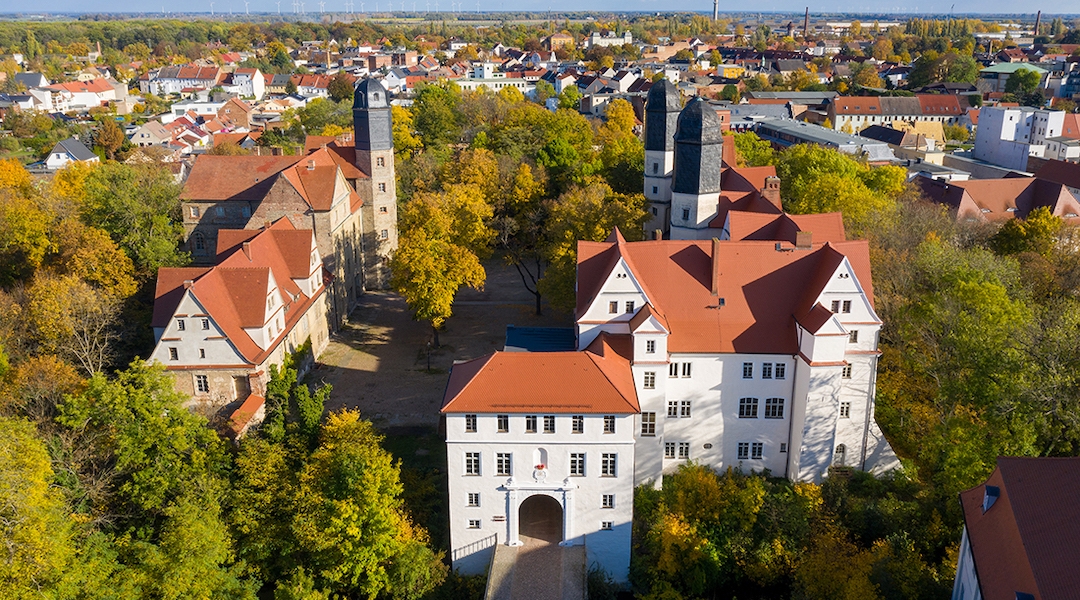Study shows right-wing extremist attitudes on the rise in Germany
The study came days after more than 40 gravestones were overturned in a Jewish section of the town cemetery of Köthen, in the former East German state of Saxony-Anhalt

An aerial view of the palace in Köthen, Germany. (Kulturstiftung Sachsen-Anhalt, Henrik Bollmann/Wikimedia Commons)
(JTA) — A new survey by a political think tank shows a major increase in right-wing extremist and antisemitic attitudes in Germany.
The study published on Thursday indicates that 8% of people in Germany have a right-wing extremist worldview, up from 2-3% in previous years. It was commissioned by the Friedrich Ebert Foundation, which is associated with Germany’s center-left Social Democratic Party.
An antisemitic worldview is held by 5.7% of respondents, up from 1.7% two years ago, and 3.3% in the previous survey. The number of those who totally rejected antisemitism dropped to 79.9 % from 88% and 86.8% in the previous two studies. In recent decades, many surveys of antisemitic attitudes in Germany and elsewhere in Europe have shown similar levels.
Six percent of respondents liked the idea of a dictatorship, up from 2-4% in previous years. More people identify as right or right of center: 15.5 % compared to 10% in the previous two studies.
Friedrich Ebert Stiftung Chairman Martin Schulz told German media that evidently “part of [German] society has less and less trust in democracy and feels threatened socially and economically.” He suggested that it was important to stand up to the right-leaning trend as represented by the rising popularity of the anti-immigrant, anti-European Union Alternative for Germany (AfD) party in polls.
The study came days after more than 40 gravestones were overturned in a Jewish section of the town cemetery of Köthen, in the former East German state of Saxony-Anhalt. The vandalism that took place between Sept. 15 and 19 is under police investigation.
As yet, police have no information about the perpetrators, but restoration costs are estimated at 20,000 euros, or at least $21,300.
This article originally appeared on JTA.org.






















